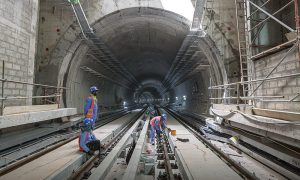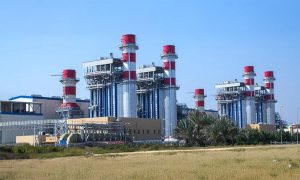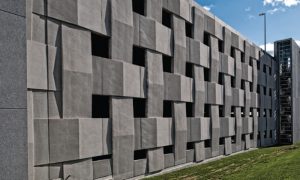‘Invest in technology to survive’ – CIC boss tells UAE industry
Local construction sector is focusing on the bottom line and not the bigger picture, Bashar Abou-Mayaleh tells MECN

Bashar Abou-Mayaleh, the managing director of Concrete Industries Complex (CIC), has called on the UAE’s construction industry to invest in new technologies and methodologies help it keep pace with changes across the global construction sector.
Speaking during an exclusive interview with MECN.com, Abou-Mayaleh criticised the local construction sector for its lack of focus on the larger picture, focusing instead on the bottom line.
“I believe that the whole construction sector is lagging behind. Dubai’s construction sector is very focused on volume and output, and it doesn’t focus on advancements that happen in other fast-growing countries and markets like China, Malaysia, Singapore, Hong Kong and even the USA and some European countries.
“In general, the construction industry, if you compare it with other industries around the world, it’s the lowest in growth and in putting in new technology,” he said during an interview at CIC’s offices in Dubai Investment Park.
This is particularly true of the concrete sector, he added, highlighting that it was suffering due to the lack of forward thinking.
“Unfortunately, we are very much behind as an industry. We need a revolution, an introduction of new methodologies to be able to give real value to the industry. The concrete sector can contribute to construction in an excellent way, but that’s not the actual situation.
“The industry continues to focus on cost cutting in a very negative way, but it’s time to reinvest to reduce costs. It’s time to bring more automation within the industry to increase the efficiencies, but I believe that no one is going in that direction,” Abou-Mayaleh asserted.
However, he expressed optimism about the general construction industry picking up the pace when it came to technology adoption but pointed out that it was due to necessity rather than desire.
“It (technology adoption) is absolutely coming, because the construction sector in general has squeezed itself to the rock bottom point. Everybody is working at almost zero margins, so what else is there? Where can you go after that? You can go bankrupt, or you must find a strategic alternative – revolutionary solutions. It must come, and it is coming.
He added that CIC had made the decision to shift its focus from being profit-oriented to being volume-oriented in the last quarter of 2017. As a result, significant investment was made to implement advanced technologies and automation across all three of the business units.
“We’ve automated almost all our steel reinforcement activities. This has cost us a lot of money, but the return is that it’s increased our efficiency and we have reduced manual work within this very costly activity in our production facility.
“Plus, we have created new methodologies for mould and shutter making, which is reflected in around a 34% reduction in our moulds cost. It is much more automated, and the fabrication of the moulds are more efficient.
“We have added a full-setup for sandblasting as per the latest environmental requirements. It’s a total-built-in set up that is helping us to produce the pre-finished, high-quality pre-cast cladding,” he explained, adding that expansions are also being made in the ready-mix and blocks divisions.
“We are developing a new factory in Al Qudra for ready-mix and we are adding a new plant in our block factory that will be specialised in thermal blocks. We’ve finished several expansions for Hard Precast – we’ve increased more than 23% of the total number of pre-cast tables,” he added.
Furthermore, the company has added 26 transit mixers and six mobile pumps to its ready-mix division, following on from the acquisition of 15 concrete pumps and 25 transit mixers that were bought in 2017.
“We are spending and recognising the return on this investment,” Abou-Mayaleh asserted. “We have increased our turnover by 27% for HPBS in 2018, as compared to 2017, and we increased our rock bottom figures by 35%. It was far beyond our expectations that such an advancement within our activities and operations, such an increase in revenue (was possible),” he concluded.

























